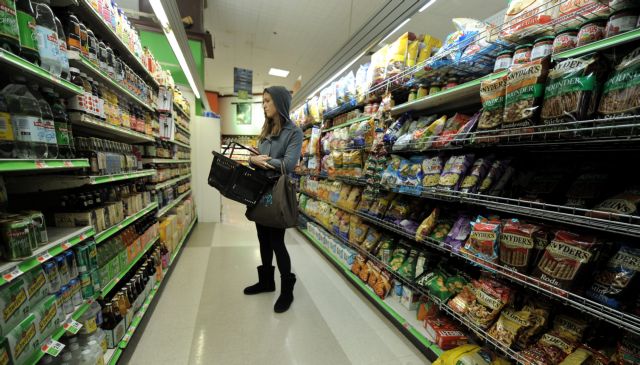Based on the data available from the European Commission’s detailed average price report for November 2013, Greek consumers pay far higher prices for goods and services than other European people.
The excessive prices can be attributed to the fact that the income of the Greek consumer has dropped by about 30% in recent years, while consumer prices remained more or less unchanged. This in turn triggered a collapse in demand, further compounding the problem.
The European Commission’s report includes average prices for 20 essential goods, such as milk, coffee, bread and butter, to help compare prices between the Netherlands, Greece, Portugal and Luxemburg. In Greece where the average wages are 586 euros, these 20 items would cost 63.4 euros, or 10.81% of wages. In the Netherlands the average wages are 1,478 euros and the 20 items cost 50.3 euros, or 3.4% of the wages.
Even in Portugal, which is also dealing with serious financial problems, consumer prices are not as excessive as they are in Greece. The average Portuguese consumer earns 485 euros and pays 46.48 euros for the 20 items, namely 9.58% of wages.
The most indicative case of high prices is milk: Greek consumers pay on average 1.28 euros per liter, just as much as in Luxembourg pay, where wages however are three and a half times higher. The government attributes this discrepancy to inherent problems of the Greek dairy industry and legislation.





